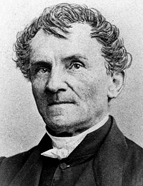

In general, the Germanic world, like the rest of Europe from 1789 to 1848, experienced various political solutions and bloody wars and revolutions, alongside a collective effort to promote cultural enlightenment and the study of national and European history and identity. Leading figures in 19th-century culture and politics, such as Goethe and some of his disciples (the von Humboldt and Schlegel brothers), as well as Metternich and the historians Niebuhr and Ranke, stood out for their commitment and work in devising institutional solutions and documentary collections that served a particular conception of the public good and its respective social and political causes linked to the construction of the nation state. It should be noted that the concern with delimiting these documentary repositories, with the consequent deepening of the critical apparatus of history, was not unrelated to a political and ideological function that European culture at the time attributed to it. History was understood as a decisive element in the definition of national cultures and their respective disputes over affirmation and hegemony. It was a point that united different political sensibilities.
Not only did the geography, linguistics and history of peoples and states undergo remarkable growth and development, but literature, law and institutions were also the subject of thorough documentary analysis and ambitious theorising, both at the level of each human community and in terms of their mutual relations and enrichment. As is logical, the history of the main European and overseas empires was the subject of curiosity on the part of scholars and a public eager for new knowledge and systematic and well-founded reading. The past and present of the peoples and political structures of Germany, Sublime Porta, the Holy See, France, England, Italy, Spain, Portugal and Brazil were viewed with new methodologies and intellectual tools created by the German historical school and French and English historiographies. This was the case with Ranke’s works in the 1820s and 1840s and with a complex historiographical project, under the editorial direction of Arnold Heeren and Friedrich August Ukert, which began in 1829 and was only completed in 1902. It was a general history of all European states, which eventually comprised 125 volumes. Henrich Schaefer was responsible for the volumes on Spain and Portugal (in the former case, continuing the work begun by Friedrich Whilelm Lembke).
This work is financed by national funds through FCT - Foundation for Science and Technology, I.P, in the scope of the projects UIDB/04311/2020 and UIDP/04311/2020.
